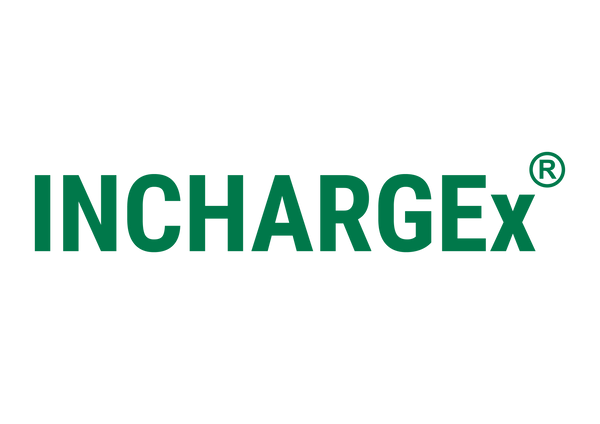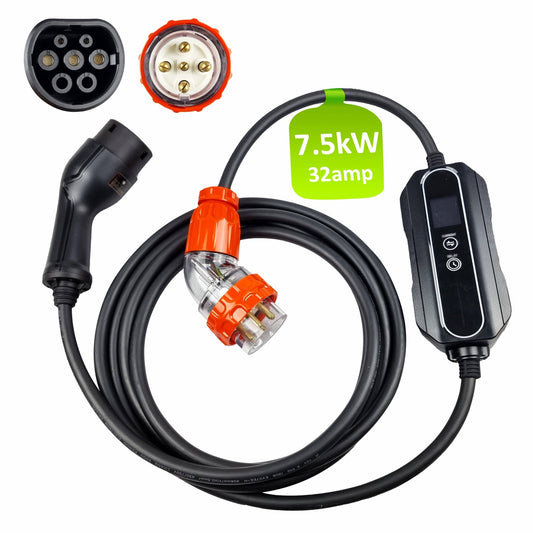As the electric vehicle (EV) revolution accelerates across Australia, the convenience and flexibility of effective charging solutions have never been more critical. At INCHARGEx, we specialize in portable EV chargers that offer distinct advantages over traditional fixed chargers. This guide will help you choose the best portable ev charger for your home, whether it has a single-phase or three-phase power supply.
Understanding Your Home Power Supply
Identifying the right EV charger starts with understanding the type of power supply in your home. Here’s how you can determine if you have single-phase or three-phase power:
- Check Your Electricity Bill: Your power setup may be listed here.
- Look at Your Electrical Panel: It should indicate whether you have single-phase or three-phase.
- Consult an Electrician: A professional can provide a definitive answer.
Benefits of Portable Over Fixed EV Chargers
Portable EV chargers provide flexibility and several advantages over fixed charging stations:
- Mobility: Bring your charger wherever your EV goes, not just at home.
- Low to No Installation Costs: Portable chargers often require minimum installation, or with 10A charger no modifications to your home’s electrical system.
- Versatility: Easily switch between different power outlets and adapt as your charging needs change or as you travel.
- Cost-Effectiveness: Generally, portable chargers are more affordable than installing a fixed station.
Choosing a Portable Charger for Single-Phase Power
Most Australian homes are equipped with single-phase power, ideal for overnight charging of your EV. Here's what to look for in a portable charger from INCHARGEx:
- Compatibility and Power: Our chargers are designed to work seamlessly with your home’s 230 volts single-phase power.
- Efficiency: Charge your EV overnight with up to 7.4 kW of power output.
Our single-phase charger ranging from 10A 2kW up to 32A power 7kw portable EV charger.
Opting for a Portable Charger with Three-Phase Power
For homes with three-phase power, you can enjoy even faster charging times:
- High-Speed Charging: Our three-phase portable chargers can deliver up to 22 kW, drastically reducing your EV’s charging time.
- Vehicle Compatibility: Ensure your vehicle can handle three-phase charging to maximize the benefits of our high-powered models.
Our 3 phase charger for your car that capable of 11kW and 22kW charging.
Why Choose INCHARGEx Portable Chargers?
INCHARGEx portable EV chargers stand out for our advanced technology, safety, and user-friendly designs. They are an excellent investment for EV owners looking for reliable, flexible, and efficient charging solutions without the permanence and higher costs of fixed stations.
Conclusion
Choosing the right EV charger is essential for maximizing your electric vehicle’s utility and ensuring you’re never left without power. Portable chargers from INCHARGEx offer unmatched flexibility, making them an ideal choice for EV owners who value convenience and mobility. Visit our product range at INCHARGEx to find the perfect portable EV charger that suits your lifestyle and charging needs.
Refer to the following table to identify your car model and the maximum power the car can take on single phase or 3 phase power.
| Car brand/model | Single Phase | 3 Phase |
| Audi e-tron: 2020-current | 7kW (32A) | 11 kW (16A per phase) |
| BMW i4: 2022-current | 7kW (32A) | 11 kW (16A per phase) |
| BMW i5: 2023 - current | 7kW (32A) | 11 kW (16A per phase) - 22kW optional |
| BMW i7: 2023 - current | 7kW (32A) | 11 kW (16A per phase) |
| BMW iX: 2022-current | 7kW (32A) | 11 kW (16A per phase) |
| BMW iX3: 2022-current | 7kW (32A) | 11 kW (16A per phase) |
| BYD Atto 3: 2022-current | 7kW (32A) | |
| BYD Dolphin: 2023-current | 7kW (32A) | |
| BYD Seal: 2023-current | 7kW (32A) | |
| Cupra Born: 2023-current | 7kW (32A) | 11 kW (16A per phase) |
| Fiat 500e 2023-current | 7kW (32A) | 11 kW (16A per phase) |
| Ford Mach-E: 2023 - current | 7kW (32A) | 10 kW (16A per phase) |
| Genesis GV60: 2022-current | 7kW (32A) | 11 kW (16A per phase) |
| Genesis GV70: 2022-current | 7kW (32A) | 11 kW (16A per phase) |
| Genesis G80: 2022-current | 7kW (32A) | 11 kW (16A per phase) |
| GWM Ora: 2023 - current | 7kW (32A) | 11 kW (16A per phase) |
| Hyundai Ioniq 5: 2021-current (Includes Ioniq 5 N Performance) | 7kW (32A) | 11 kW (16A per phase) |
| Hyundai Ioniq 6: 2023-current (Includes 2024 model updates) | 7kW (32A) | 11 kW (16A per phase) |
| Hyundai Kona electric: 2024-current (2019-23 model in second-hand page) | 7kW (32A) | 10 kW (16A per phase) |
| Jaguar I-Pace: 2019-current | 7kW (32A) | 11 kW (16A per phase) |
| Kia Niro EV: 2022-current | 7kW (32A) | 11 kW (16A per phase) |
| Kia EV6: 2022-current (Including EV6 GT) | 7kW (32A) | 11 kW (16A per phase) |
| Kia EV9: 2024-current | 7kW (32A) | 10 kW (16A per phase) |
| LDV Mifa9 electric: 2022-current | 7kW (32A) | 11 kW (16A per phase) |
| Lexus RZ 450e: 2023-current | 7kW (32A) | 11 kW (16A per phase) |
| Lexus UX 300e: 2022-current | 6.6kW | |
| Mercedes EQA: 2021-current | 7kW (32A) | 11 kW (16A per phase) |
| Mercedes EQC: 2019-current | 7kW (32A) | 11 kW (16A per phase) |
| Mercedes EQE sedan: 2023-current | 7kW (32A) | 22kW (32A per phase) |
| Mercedes EQE SUV: 2023-current | 7kW (32A) | 11 kW (16A per phase) |
| Mercedes EQS sedan: 2022-current | 7kW (32A) | 11 kW (16A per phase) |
| Mercedes EQS SUV: 2023-current | 7kW (32A) | 11 kW (16A per phase) |
| Mercedes EQV: 2022-current | 7kW (32A) | 11 kW (16A per phase) |
| Mercedes eVito Tourer: 2022-current | 7kW (32A) | 11 kW (16A per phase) |
| MG4: 2023-current (Including XPower AWD version) | 7kW (32A) | 11 kW (16A per phase) |
| MG ZS EV: 2020-current Includes 2023 updates |
7kW (32A) | 11 kW (16A per phase) |
| Mini Cooper SE electric: 2020-current | 7kW (32A) | 11 kW (16A per phase) |
| Nissan Leaf ZE1: 2019-current | 6.6kW (28A) | |
| Peugeot e-2008: 2023-current | 7kW (32A) | 11 kW (16A per phase) |
| Polestar 2: 2024 update (Includes 2021-23 model) | 7kW (32A) | 11 kW (16A per phase) |
| Porsche Taycan: 2020-current | 7kW (32A) | 11-22kW (16A-32A per phase) |
| Porsche Taycan Cross: 2022-current | 7kW (32A) | 11-22kW (16A-32A per phase) |
| Renault Megane E-Tech: 2024-current | 7kW (32A) | |
| Subaru Solterra: 2024-current | 7kW (32A) | 11 kW (16A per phase) |
| Tesla Model 3: 2019-current | 7kW (32A) | 11 kW (16A per phase) |
| Tesla Model Y: 2022-current | 7kW (32A) | 11 kW (16A per phase) |
| Toyota bZ4X: 2024-current | 7kW (32A) | 11 kW (16A per phase) |
| Volvo C40 Recharge: 2022-current | 7kW (32A) | 11 kW (16A per phase) |
| Volvo XC40 Recharge: 2021-current | 7kW (32A) | 11 kW (16A per phase) |
| Volvo EX30: 2024-current | 7kW | 11kW |
Source: BEV Fact Sheets: Passenger Cars | Australia | (aeva.asn.au)













